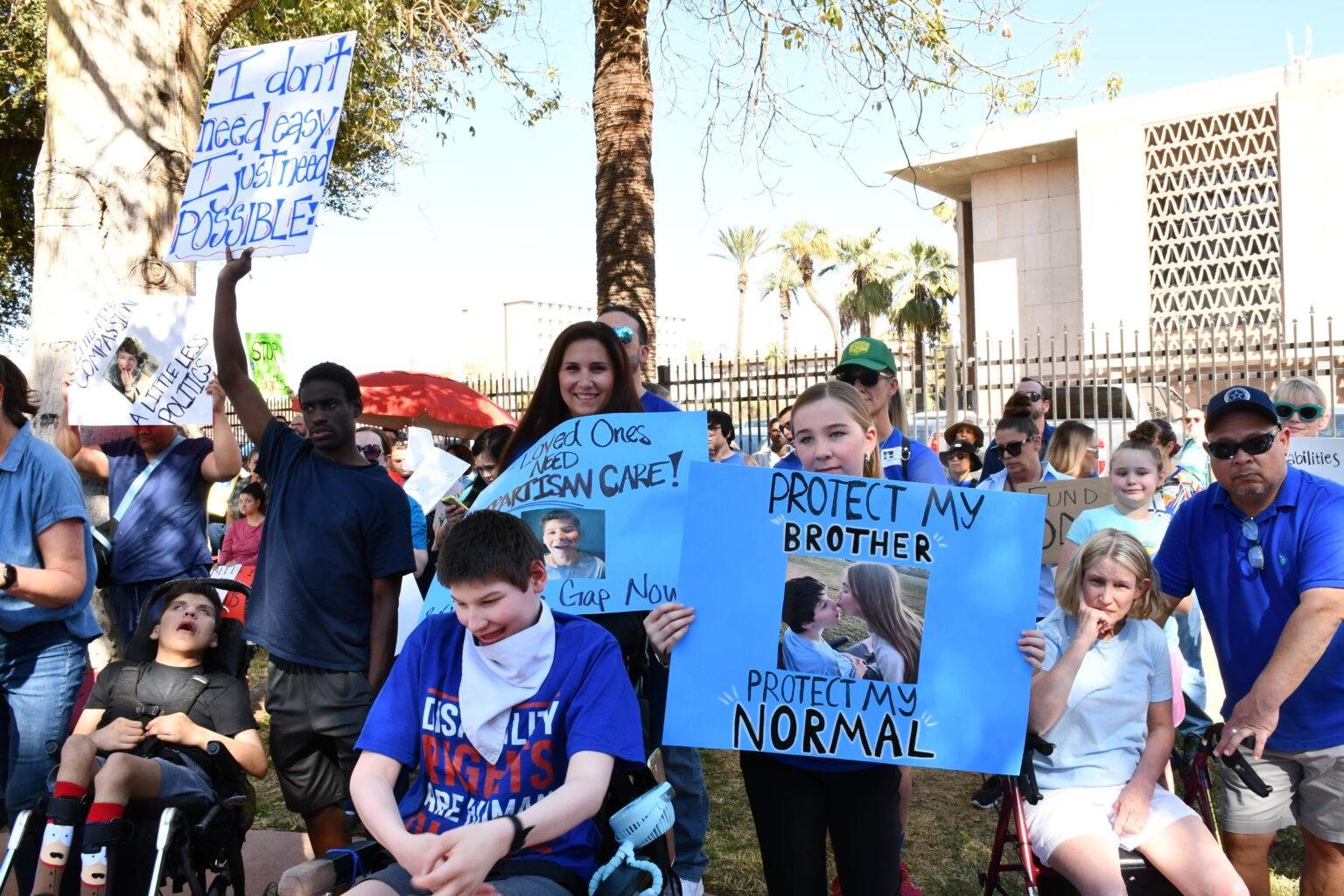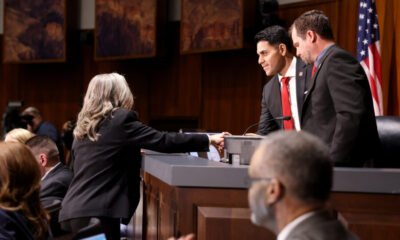arizona
Last-Minute Breakthrough Could Save Vital Services for 60,000 Arizonans with Developmental Disabilities

Arizonans with developmental disabilities can breathe a sigh of relief as state lawmakers have taken steps to secure funding for essential services. In a critical vote on Wednesday evening, the Arizona House of Representatives passed a supplemental funding bill amid intense negotiations, with the bill receiving overwhelming bipartisan support at 48-11.
The urgency of the situation was evident, as the state’s Division of Developmental Disabilities was on track to exhaust its funds within a week. House Bill 2945, amended to include a deal between Republicans and Democratic Governor Katie Hobbs, aims to alleviate a $122 million funding shortfall. Most dissent came from a minority of Republicans within the far-right Arizona Freedom Caucus.
Rep. David Livingston, R-Peoria, highlighted the importance of the initiative, stating, “This has not been easy, but we will help save lives.” The bill will now move to the Senate, where a competing funding proposal found little support. Governor Hobbs previously dismissed that proposal as “dead-on-arrival,” prompting heated negotiations in the House.
Families reliant on these services have faced mounting anxiety, concerned about potential loss of vital support as the legislative deadlock persisted since January. Negotiations finally yielded the decision to shift funds from the Prescription Drug Rebate Fund instead of utilizing previously allocated housing funds, a move aimed at securing broad legislative agreement.
Significant amendments in the House also affected the Arizona Health Cost Containment System’s legislative requirements, simplifying the process needed for certain amendments to existing waivers from federal governance. However, they maintained necessary legislative approval stipulations for new waivers impacting service expansion or substantial utilization increases.
Concerns remain for nearly 60,000 Arizonans with conditions like autism or cerebral palsy. Without resolution before the April 30 deadline, critical services could be jeopardized. Families have actively lobbied lawmakers, fearing the dire consequences of losing support, including the need for parents to leave jobs or institutionalize their children.
The Parents as Paid Caregivers program, pivotal in the funding equation, enables parents to provide in-home care for children requiring “extraordinary care.” Initially federally funded, the state now bears a portion of the cost, complicating the ongoing budget discussions.
Despite resistance, the program has more than doubled its participation over the past year. Critics have accused the governor of expanding the program without adequate funding support; yet, some Republican legislators softened their stance post-vote, acknowledging bipartisan responsibility for the welfare of vulnerable citizens.
Rep. Matt Gress, R-Phoenix, emphasized the need for oversight, stating that the proposed amendments would set necessary “guardrails” around the program. The revisions also included specific operational limits on the PPCG, such as capping billing hours and imposing restrictions that aim to maintain program integrity.
As discussions move toward the Senate, hopes remain high for a collaborative resolution. Senate Democrats have voiced concerns over the waiver approval amendments, labeling them as potential threats to program viability, underlining the continued complexities of the legislative process regarding care for Arizona’s most vulnerable residents.


















